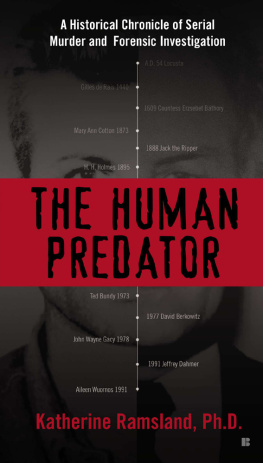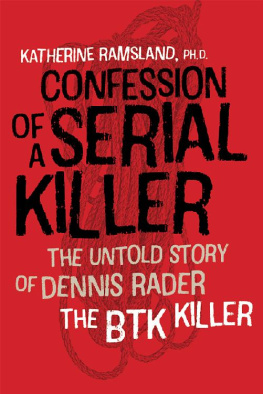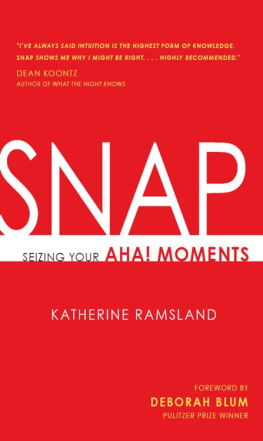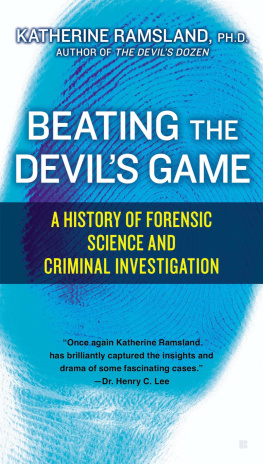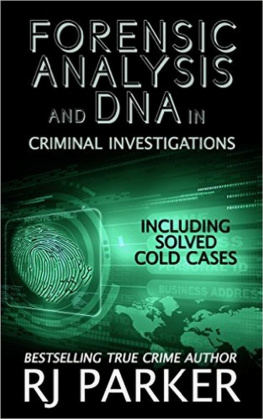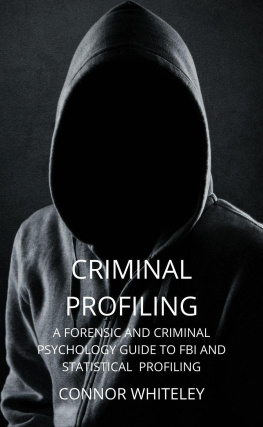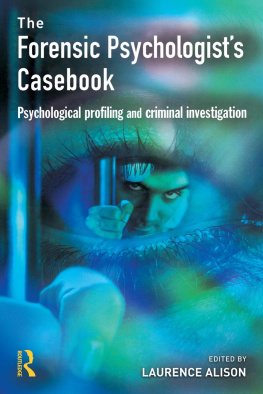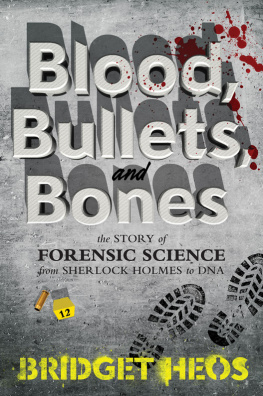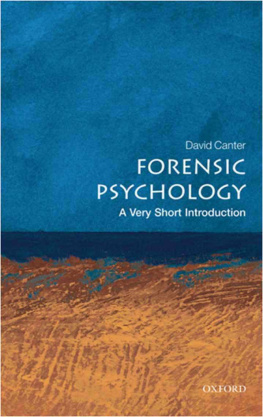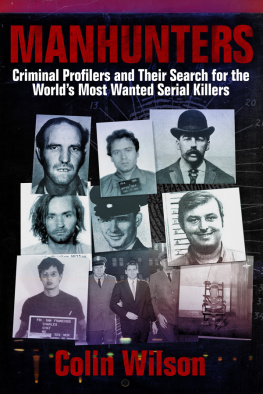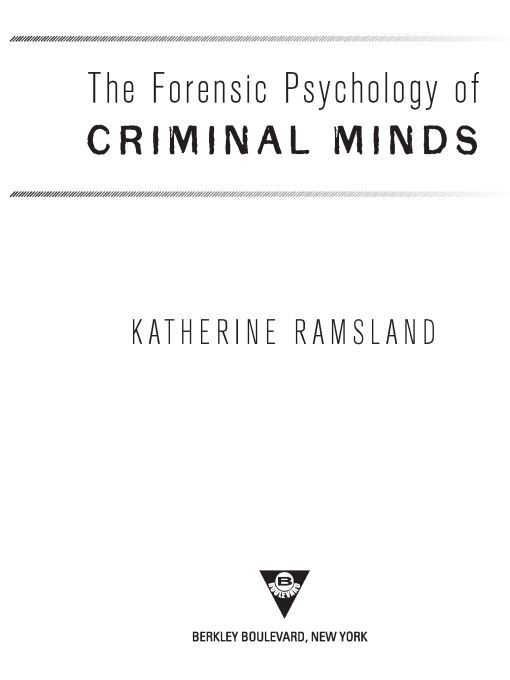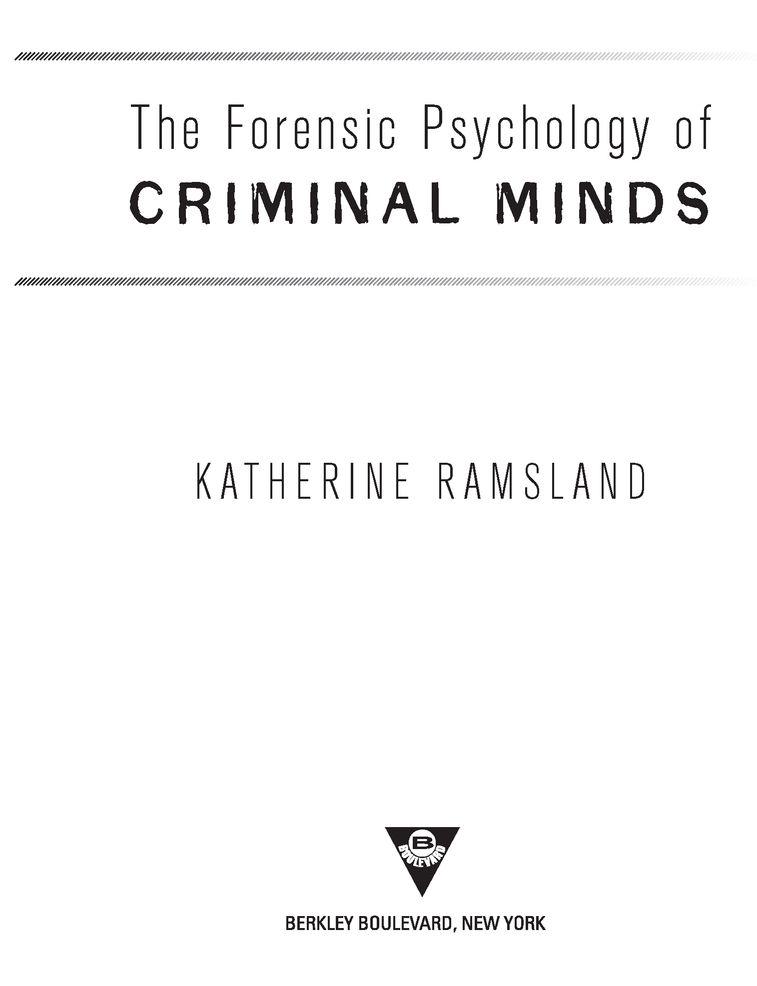Table of Contents
Praise for Katherine Ramslands books
TRUE STORIES OF C.S.I.
C.S.I. fans... will enjoy this professionaland professionally morbidtreatment of their favorite T.V. crime dramas.
Publishers Weekly
BEATING THE DEVILS GAME
A great forensic thriller, and once again Katherine Ramsland has brilliantly captured the insights and drama of some fascinating cases.Dr. Henry C. Lee
THE C.S.I. EFFECT
Ramsland expands upon the scientific and investigation procedures that viewers see on the [C.S.I.] show. Using real examples such as the BTK murders and the O. J. Simpson case as well as episodes from the three C.S.I. shows, Ramsland analyzes the ways technology such as the Internet and DNA testing are revolutionizing the way law enforcement apprehends killers and obtains convictions. Ramsland also looks at how a case can get derailed when eyewitness testimony contradicts the physical evidence or when the handling of the evidence is called into question. A fascinating must- read for C.S.I. fans and anyone interested in criminal justice.Booklist
THE FORENSIC SCIENCE OF C.S.I.
With the mind of a true investigator, Katherine Ramsland demystifies the world of forensics with authentic and vivid detail.
John Douglas, former FBI profiler and coauthor of Mindhunter: Inside the FBIs Elite Serial Crime Unit
Fascinating... this book is a must for anyone who wonders how the real crime-solvers do it.
Michael Palmer, New York Times bestselling author of The Second Opinion
THE HUMAN PREDATOR
Extraordinary, well-researched, written in a flowing, easy-to-understand style. Unique in the fieldfor anyone interested in either forensic science and psychology or serial murder, this book is a must-have.Court TV Crime Library
THE UNKNOWN DARKNESS
Coauthored with Gregg O. McCrary
One of the most intensely readable and gripping accounts of serial murder I have ever read.
Colin Wilson, author of Serial Killer: A Study in the Psychology of Violence
Also by Katherine Ramsland
The Devils Dozen: How Cutting-Edge Forensics
Took Down 12 Notorious Serial Killers
True Stories of C.S.I.
Into the Devils Den: How an FBI Informant Went into the
Aryan Nations and an FBI Agent Got Him Out Alive
(with Dave Hall and Tym Burkey)
Inside the Minds of Healthcare Serial Killers
Beating the Devils Game: A History of Forensic Science
and Criminal Investigation
The Human Predator: A Historical Chronicle of Serial Murder
and Forensic Investigation
Inside the Minds of Serial Killers: Why They Kill
Inside the Minds of Mass Murderers: Why They Kill
The C.S.I. Effect
A Voice for the Dead
(with James E. Starrs)
The Science of Cold Case Files
The Unknown Darkness: Profiling the Predators Among Us
(with Gregg McCrary)
The Science of Vampires
The Criminal Mind: A Writers Guide to Forensic Psychology
The Forensic Science of C.S.I
For Robert Ressler and Gregg McCrary,
former members of the FBI BSU/BAU,
who were most instrumental in helping me
to understand the process of profiling.
ACKNOWLEDGMENTS
Having gotten my start by working on The Cases That Haunt Us with John Douglas leads me to thank him first. Then both Robert Ressler and Roy Hazelwood agreed to interviews about their work, and through that I learned quite a bit more about special areas of criminal profiling. Ressler also went into detail about some of his investigations. Around the same time, I worked with Gregg McCrary on turning his cases into a book, The Unknown Darkness: Profiling the Predators Among Us. To them I owe a lot as well as to more recent personnel: Mark Hilts, Mary Ellen OToole, and Mark Safarik, whove all spoken to me about their experiences. In addition, I listened to Criminal Minds (CM) producer Andrew Wilder describe how he worked with FBI consultants to write episodes of CM, and Ive long known and learned from Robert Hare, the worlds acknowledged expert on psychopathy. At the same time, Ive learned much from my colleagues in the forensic sciences or investigation, notably Henry C. Lee, Cyril Wecht, M. Fredric Rieders, Traci Ardinger, James E. Starrs, Lee Lofland, and Michael Baden.
I also want to thank Kristin Sell for her assistance with proofreading the manuscript, and Marie Gallagher, Pelli Wheaton, and Ruth Osborne for believing in me.
My agent, John Silbersack, was quick to see the potential in this book, and I thank him for his friendshiptwenty years now!and enthusiastic support. The same goes for my editor, Ginjer Buchanan. My gratitude to both, and to Kim Lionetti for getting me started with this series of books.
INTRODUCTION
Forensic Psychology and the Profiler
Most crime scenes tell a story. The ability of the investigator to perceive the details of this story depends on his or her ability to analyze the crime scene.
JOHN DOUGLAS
Pop culture has merged with criminal investigation to the point at which the shows most in demand generally involve murder. While the good guys still outwit the bad guys, experiments that subvert such expectations have also proven popular. Notable is a series about Dexter Morgan, a serial killer who holds a job with the Miami police as a blood pattern analyst and whose personal code dictates that he slice and dice other killers. Because hes both a good and a bad guy, with a certain amount of flair, hes a potential role model.
At least Canadian filmmaker Mark Twitchell thought so. He became so enamored of Dexter that during the fall of 2008 he decided to start killing, too. Earlier, Twitchell had filmed a movie in which a killer lured men to a brutal death by offering an Internet encounter with a nonexistent woman. It seems that Twitchell then crossed the line. After baiting actual victims with the same Internet ruse, hed lure them to his garage and meet them wearing a hockey mask and wielding a chain saw. The first man fled, but John Brian Altinger was not so lucky. He turned up missing.
When hed quit his job by e-mail and claimed to have taken off with a woman, a friend grew suspicious of this uncharacteristic behavior and contacted the police. The friend provided the address where he knew Altinger had gone, and in Twitchells garage investigators discovered evidence that someone had been strapped to a chair and murdered.
In Twitchells script, the killer worked for the police, just like Dexter, and on the status line of his Facebook page Twitchell had written, Mark has way too much in common with Dexter Morgan. It was just a matter of time before some unstable person like Twitchell merged himself with this character.
Ironically, a case like thislife imitating fictionis perfect for fiction that imitates life. In fact, the majority of episodes on CBSs Criminal Minds (CM) are based on actual cases (including copycats), and its not difficult to identify them. Several of the first-generation members of the FBIs Behavioral Science Unit, or BSU (now the Behavioral Analysis Unit, or BAU) have written books about their most interesting or high-profile cases. In addition, because the profilers have been elevated in our culture to elite status, books devoted to profiling have proliferated, from a biography of the BAU to collections of scholarly articles to pop overviews.


